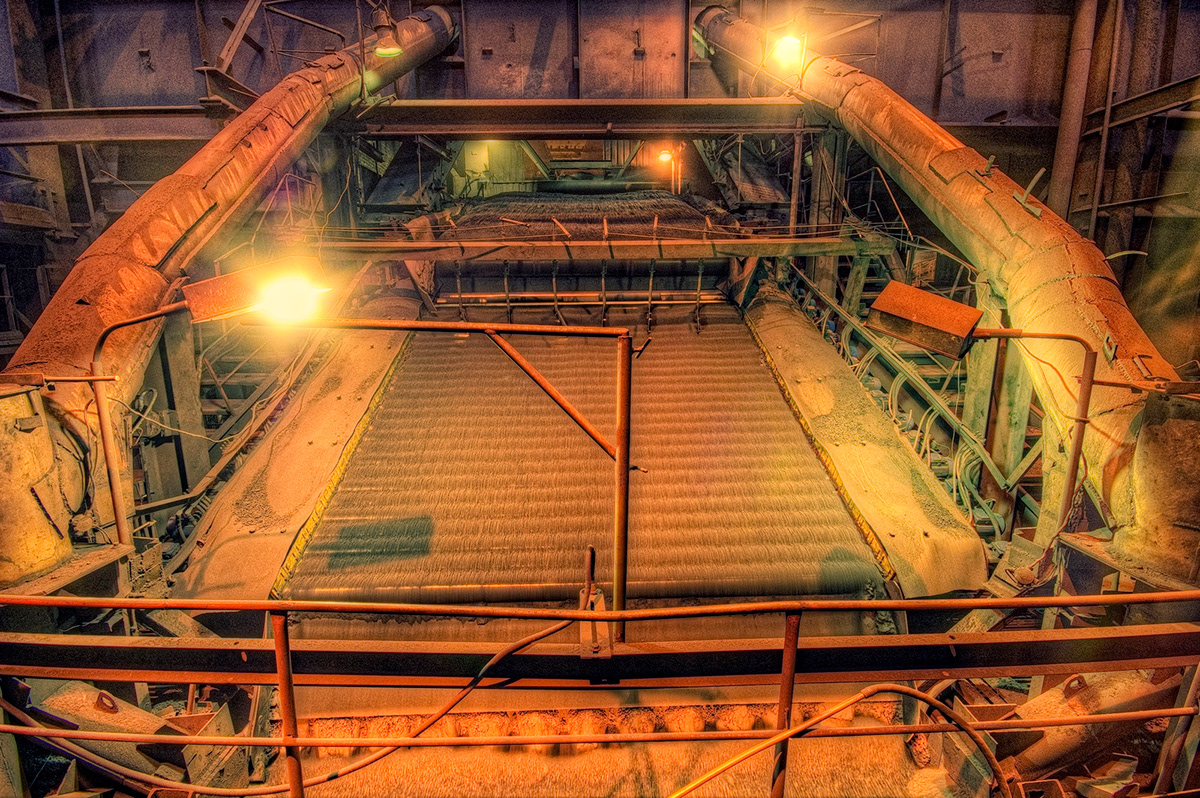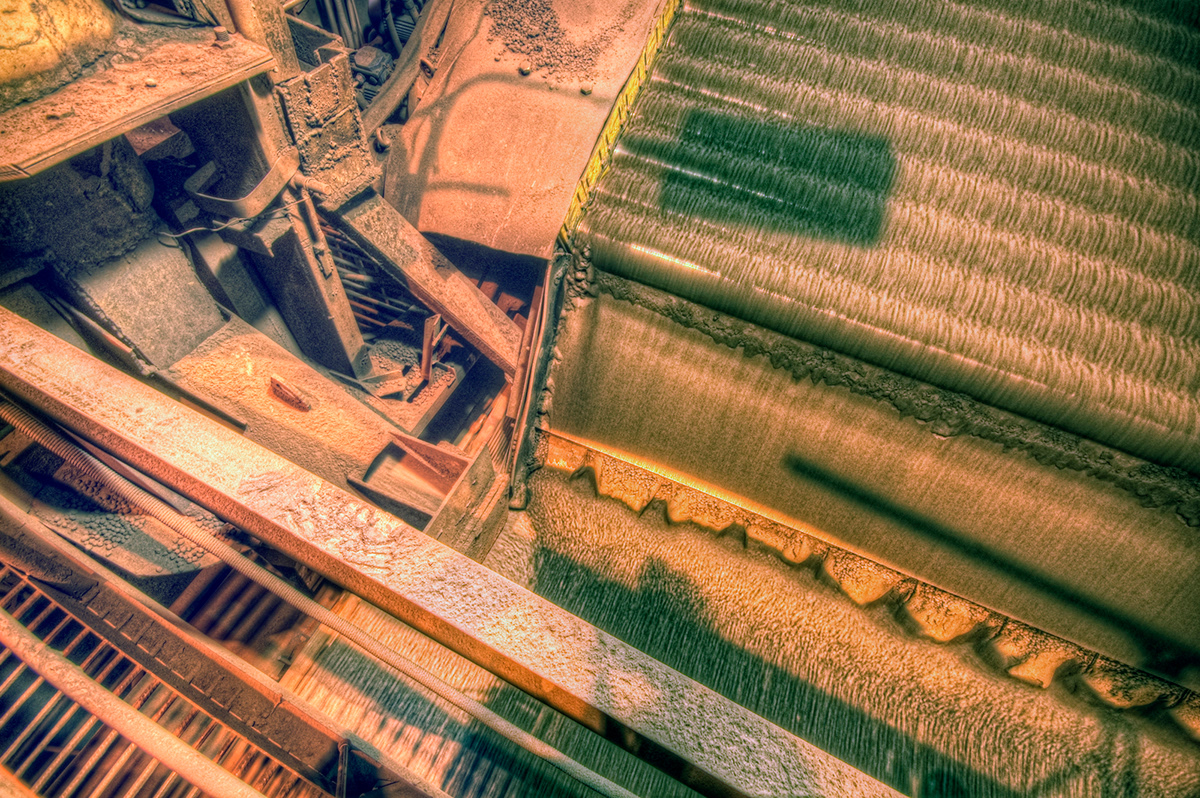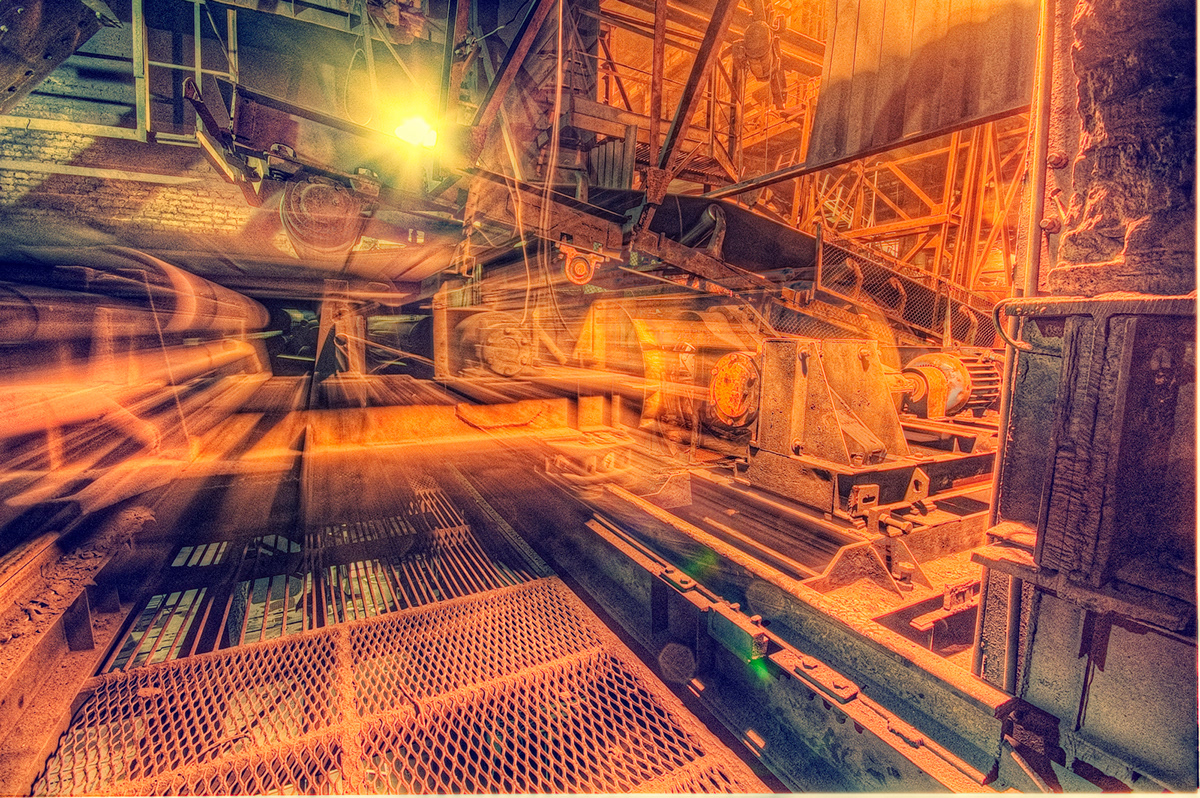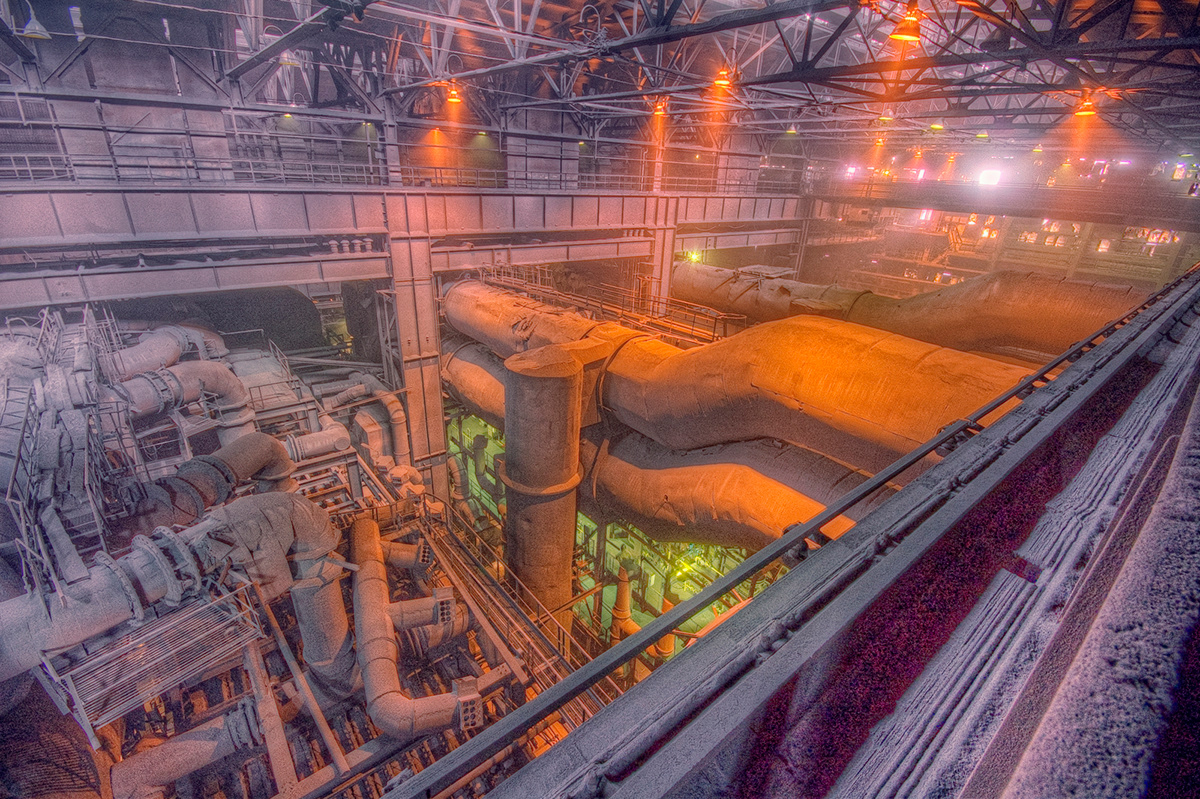Half Past Life
Machinery. Salary. Slavery.
↓
Music by Dimmu Borgir
↓
↓
Katchkanar ore mining and processing factory. Operating since 1963.
Here we are now launching an exclusively designed automated dispatcher system that will allow controlling the factory transport lines from operator station via dedicated human-computer interfaces, controllers and networks. Let's now take a step into the operation zone.




The factory digs up the sand in special iron-reach region. Sand is then filtered with magnetic separators so that schicht happens.
The schicht is a coal-like micropowder of 62% ferrum, 0.5% vanadium oxide and the rest of slag. Pure metal is then produced from schicht in melting furnaces. This stage is conducted at the other factories of Urals, Turkey and Kasakstan.
The problem is that the powder is difficult to transport: microdust flies away. That’s dirty and costly. So the solution is to add some water, then roll the schicht into pellets, then treat pellets with heat so that they become hard. Then pellets can be transported by regular trains. Pelletizers revolve day and night. Here the schicht rolls on...


The plant in general is designed to be process-friendly, not human-friendly. Conveyors and mechanisms are arranged so that people have to pass labyrinths of corridors and stairs to reach the desired place. First the plant is built, then a human is supposed to fit in somehow.
The way to a dispatcher's room is traced through a pelletizer hall and nowhere else. The everyday task to keep yourself clean while reaching the dispatcher's room remains unsupported. Surprisingly enough that bosses suffer the same. On the picture below this path could be followed. The entrance to the hall is located under the most distant pelletizer, and dispatcher’s room is in the wall to the right, under that wonderful hook. You need to pass all these balconies up to the third level.


Healthy working environment is a myth here. Vibration is so strong that at the end of day you feel you can't focus your eyes well enough.
Noise has the high level all over the plant, but in some common places no earphones with 100% black metal can suppress it. Much like a turbo drive of a plane when it takes off. One of the factory mechanisms is officially called "thunder" to emphasize the noise level it makes.
The most dangerous thing is the dust. The plant receives over 800 tons of schicht per day and produces 600-700 tons of pellets from it (where does the rest go?). The concentration of dust in the air has a limit of 4 mg/m3, after which the lung ilnesses progress irreversibly if exposed to the dusty air during the normal working time without respiration filters. The current (2010) measurements are 9.4 6.1 17.3 24.0 mg/m3 in different places, 11.2 on average at the plant, and rising each year.
A thick layer of schicht covers all surfaces. There are some stairways where you cannot reach the stair steps under the layer. Easy to slide off and bite the dust literally.
Some places DO have a 1000 mg/m3 of shicht in air. It means the supreme darkness: nothing can be seen at all. If you want to see something you just have to kick a hole in heavy air and put your headlight in it. Yes, no sunlight comes inside, and artificial light is seldom efficient. Workers use headlights. They come early, when it is dark outside and leave late, when it’s dark again, so they usually see no sunlight for weeks.



Workers are instructed to wear helmets, glasses, earphones and respirators or gas masks, but nobody cares. I wonder why. Seems like they have too much desperation to care about respiration. Instead they use every opportunity to pass the time smoking their cheap tobacco. All the corridors in the plant stick awfully with it.
Workers of the plant have a significant decrease of life expectancy 54 years. Those who are in their 50s age faster than in cities and look like they are 70. I was asked several times who let the kid like me to the factory, because people of my age are expected to look older. Of course, no healthy child. No smiling face. The primitive jail-styled aggressive bone crusher male is what evolution leads to. Both boys and girls build this image from childhood.




A stop is the only thing people care of. If something stopped in the line of technology the plant immediately starts losing its millions. Losses of ineffective old process are not considered, neither is peoples’ health. When something stops, someone should be found responsible for that.
Those who are found to be responsible write explanatory excuse papers, starting from punishing themselves by their own. Then every part of foodchain is punished by masters, administrators and directors. The lowest chains are treated heavily: they get less money.
People are prohibited to mistake. Their attention is overloaded all the day to make no mistakes. They are trained to fear of mistakes. Above all is the fear of punishment and a stress of guilt even when everything’s just fine.
Every crew is responsible for some piece of plantware. Usually people manage well and do not err, but plantware does not. It is self-destructing by design.
Just an example: Electric current-conducting schicht covers everything, so the chance of short circuit is huge. One of our notebooks was damaged because of that, and a hotstrip appeared on CCD-sensor of my camera (due to some unlucky impact with dust particle, I think).
The plantware is rotten. You never know what will be damaged the next hour and who will be punished for it. Workers always try to prove they are not (explanatory paper officially offers it), they always try to blame someone else and their voices are loud. But inside they accept blame.






Nobody cares to improve anything because nobody wants any additional duties. Although our modern automated technologies work there (somehow!), they are not fully supported by human minds. It is more natural to dig schicht instead of digging the code. It is natural to fix problems with an iron hammer instead of using brains.
Katchkanar illustrates the life at provincial industrial factories — not just in Ural region, all countries have the similar. A typical monstrous town is raised around the factory, which becomes almost the only employer. A regular practice is so called "dynastial positions", the ones inherited from fathers to sons. If you born there — the chance to escape is low.
The only way to stay alive is to dissolve in this jungles of steel, to become a part of dust seas. Some apocalyptic aesthetics can be found at least.


